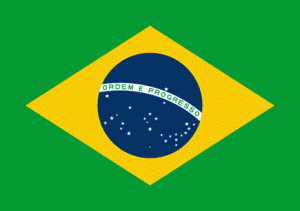On January, 29, 2014, Brazil’s new anti-corruption law, known as the “Clean Company Act” went into effect. This new law creates a stricter legal framework for Brazilian companies and foreign companies with offices, branches, or subsidiaries within Brazilian territory. The new law increases the fines that can be levied on companies involved in bid-rigging and bribing public officials.
The next few years will be an incredibly busy time for Brazilian commerce. Brazil will host the 2014 World Cup this summer, and then the Olympics in 2016. Preparation for these events has created new and exciting commercial projects for Brazil. This is especially true among public infrastructure projects such as transportation and construction. The Clean Company Act, in a way, is a pre-emptive measure to ensure fair business practices and decrease the potential for government abuse. These ongoing infrastructure projects present potential for abuse in the bidding process for public contracts. The Act will help ensure that the public contracts that result from the World Cup and Olympics are executed in a transparent and non-corrupt manner.
The Clean Company Act defines offenses broadly. According to Latham & Watkins White Collar Defense and Investigations Practice, the offenses under the Act can be summarized as follows:
- “To promise, offer or effectively give, directly or indirectly, undue advantage to a public official or to a third entity related to a public official;
- To fraud, manipulate or otherwise interfere with public bids or public contacts;
- To finance, fund or sponsor, by any means, the offenses listed in the Law;
- To attempt to conceal or dissimulate, through intermediary individuals or companies, corrupt intent or the identity of the beneficiaries of corrupt acts;
- To obstruct government investigations.”
Brazil’s new anti-corruption law, in some ways, mirrors the United States’ anti-corruption regime under the Foreign Corrupt Practices Act (FCPA). The FCPA makes it unlawful for a U.S. person or company, and certain foreign issuers of securities, to make payments to foreign public officials for the purpose of acquiring or maintaining business for or with, or directing business to, any person. In 2010, the United Kingdom passed the U.K. Bribery Act of 2010. Brazil’s new statute seems to be following a global trend of corruption awareness.

It is true the bidding process for public contracts, associated with the World Cup and Olympics, could be a tempting forum for corrupt incentives like bid-rigging and bribing in Brazil. Corrupt business practices are so engrained in some countries’ cultures that it is considered a common place expectation. Sometimes it isn’t even considered immoral. As international business and trade become easier and more commonplace it can be expected that corruption will be addressed more and more. I hope that the international community is focused on fair opportunity so that the most deserving and most fit player is able to do the job. Hopefully Brazil’s new anti-corruption law becomes a trend among other South American countries. A biding system normally works to allow the consumer to hire the supplier that offers the best price for the best product/services. It keeps companies competitive. Bribing and other corrupt business practices prevent the free market from working effectively.
It is comforting to see the Brazilian government taking action in a realm they don’t have a great reputation for. Something tells me that in bidding for the World Cup/Olympics, promises were made by Brazilian representatives that legislation like this would be put in place to protect against corruption. I hope that the new harsher laws are effective and do enough to dissuade unethical/illegal action. A situation as ripe as a back to back World Cup/Olympics is something of a once in a generation opportunity for commercial businesses, and I hope that the legislation is strong enough to combat what will be seen as the most attractive of “opportunities”. I am happy for the country of Brazil in that this will be a huge growth opportunity and a way to show the world what a renowned place it is. I do hope that laws like this have a ripple effects in other South American countries, as every effort needs to be made to maintain a fair market. The effect remains to be seen.